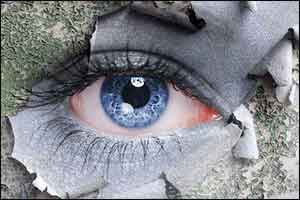- Home
- Editorial
- News
- Practice Guidelines
- Anesthesiology Guidelines
- Cancer Guidelines
- Cardiac Sciences Guidelines
- Critical Care Guidelines
- Dentistry Guidelines
- Dermatology Guidelines
- Diabetes and Endo Guidelines
- Diagnostics Guidelines
- ENT Guidelines
- Featured Practice Guidelines
- Gastroenterology Guidelines
- Geriatrics Guidelines
- Medicine Guidelines
- Nephrology Guidelines
- Neurosciences Guidelines
- Obs and Gynae Guidelines
- Ophthalmology Guidelines
- Orthopaedics Guidelines
- Paediatrics Guidelines
- Psychiatry Guidelines
- Pulmonology Guidelines
- Radiology Guidelines
- Surgery Guidelines
- Urology Guidelines
Dry eye syndrome slows reading rate, study suggests

A new of its kind study by John Hopkins researchers report that chronic dry eye can slow reading rate and significantly disrupt day to day tasks that require visual concentration for long periods of time.
The study published in Optometry and Vision Science says the condition can slow a person's reading speed by as much as 10 percent and can make it difficult to read for more than an average of 30 minutes.
Esen Akpek, the lead investigator, said that dry eye affects millions of adults in the United States, primarily those age 50 and older, causing ocular discomfort and visual problems.
Read Also: Managing Dry Eyes in Cold Weather
"Many of my patients have perfect vision on standard eye tests but complain they cannot drive at nighttime or in unfamiliar areas, read small print or do computer work," she says. Akpek suspected that traditional, short-time 75-word eye tests for reading speed and accuracy have failed to uncover the problems dry eye causes because so-called visual acuity, or sharpness, degrades only enough to be measured after longer periods of time.
"We suspected that people with dry eye were mostly unable to sustain good reading performance because their tears can't re-lubricate their eye surfaces fast enough," says Akpek.
The study included 186 participants aged 50 years or older who had not used prescription or over the counter eyedrops in the 24 hours before testing. 116 participants had a clinically significant dry eye, 39 reported dry eye symptoms but did not have clinical findings, and 31 participants without dry eye acted as controls. Of the participants, 131 with dry eye and 23 control participants were women.
The key study findings included are:
- Results showed that the 116 participants with clinically significant dry eye read fewer words per minute than the controls or those with only dry eye symptoms.
- The reading rate was 32 words per minute less in patients with clinically significant dry eye, averaging 240 words per minute compared to the controls and patients with dry eye symptoms but without clinical findings, who read at the same rate of 272 words per minute.
- The study also found that sustained visual function--such as reading, driving or performing surgery--is hard on everyone's eyes because it changes the blink rate, which spreads and replenishes tears over the cornea. However, the change in tempo affects people with a dry eye more severely.
Read Also: Very long-chain lipids may help prevent dry eye disease : Study
The diagnosis and treatment of dry eye are often complicated, in part because many conditions may cause it, including clogged oil glands and systemic inflammation from a rheumatologic disease. Current treatments may include prescription drops, lifestyle and environmental changes, and surgical insertion of plugs or other procedures to increase tear production
"The most effective treatments are those tailored to the underlying causes of the dry eye, the severity of the tear deficiency and a patient's activities," she says. People who experience frequent dry eye symptoms such as stinging, fluctuating vision and dryness can try over the counter eye drops but will do best if they undergo professional testing and diagnosis.

Disclaimer: This site is primarily intended for healthcare professionals. Any content/information on this website does not replace the advice of medical and/or health professionals and should not be construed as medical/diagnostic advice/endorsement or prescription. Use of this site is subject to our terms of use, privacy policy, advertisement policy. © 2020 Minerva Medical Treatment Pvt Ltd